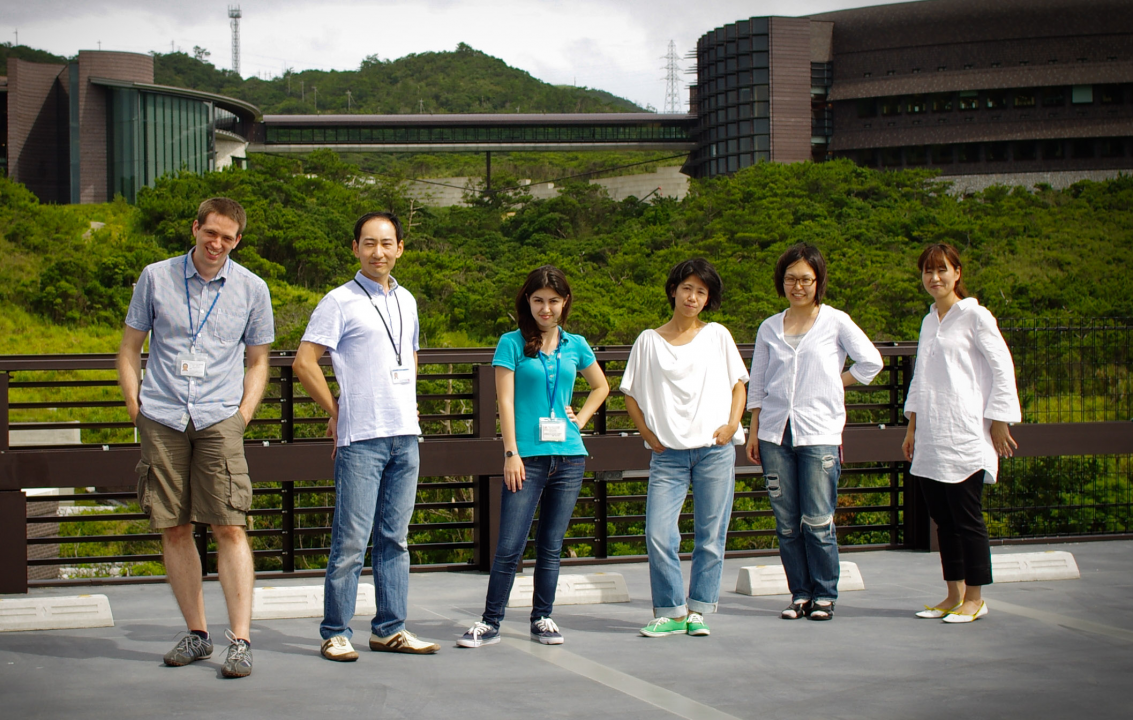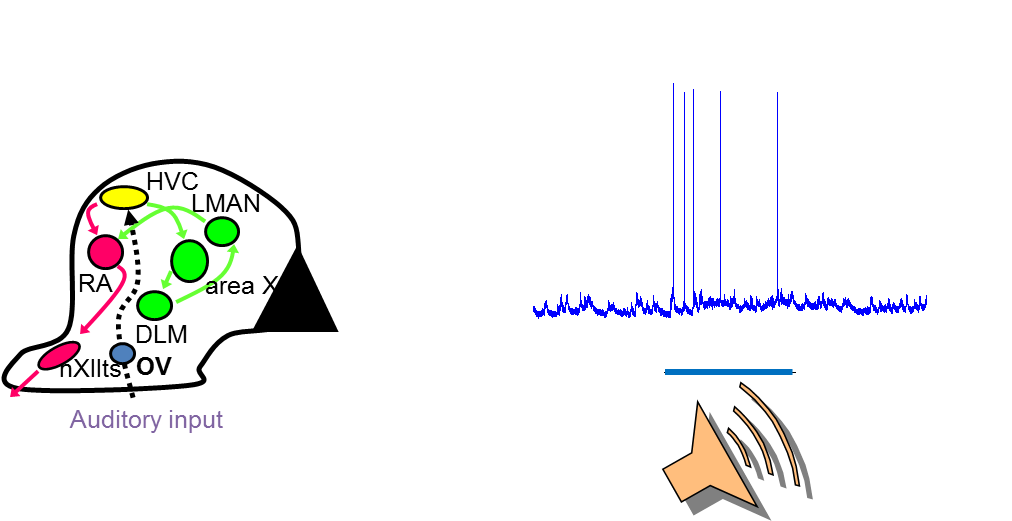FY2011 Annual Report
Neuronal Mechanism for Critical Period Unit
Professor Yoko Yazaki-Sugiyama

Abstract
We have started our unit at 2011. We are trying to understanding the neuronal mechanism underlying a specific developmental time window, ‘critical period’, where neuroal cirsuit can be shaped upon sensory experiences. One of the song birds, zebra finches learn to sing during the developmental critical period by hearing their tutor (normaly their father) song. We investigate how neuronal circuit can be developed with hearing of father song, and why can they learn only in the critical period in zebra finches.
Staring at August we have established our bird colony and equipped the experimental setups in the OIST campus, and more importantly members have joined to the lab and we have successfully started as a ‘lab’. We have progressed to the point to be ready for perusing our project in next FY.
1. Staff
- Makoto Araki, Researcher
- Christian Flecke, Researcher
- Michiko Arai, Technical Staff
- Sachiko Blanck, Administrative Assistant
2. Collaborations
- Nothing to report
3. Activities and Findings
Like humans learning to speak song birds learn to sing during development by hearing their tutor song. One of the song bird zebra finches hear their father song after hatching and memorize during in the sensory learning period. In the following (with a large overlap) sensory-motor learning period birds start to sing and match their own vocal to memorized tutor song. Their songs are highly variable in their phonetic structure and sequence of each element, which become refined and crystalized after thousands of repeats.
 Figure 1: Time line of zebra finch song learning
Figure 1: Time line of zebra finch song learning
The brain areas which are necessary for song producing and learning are well identified as ‘song systems’. The brain area HVC, the apex of song system, reveives the inputs from auditory areas like field L and NCM, the homologous area of mammalian auditory and auditory associated cortex. The neurons in those areas show selective auditory responsiveness to their own song as well as the songs from individuals of the same species. We are investigating what kind of features birds are using to detect each individual and own species song, and whether this discrimination ability depends on sensory experiences during development.

Figure 2: 'Song system' in the birds' brain and neuronal response o the song presentation.
4. Publications
4.1 Journals
Nothing to report
4.2 Books and other one-time publications
Nothing to report
4.3 Oral and Poster Presentations
- Y Yazaki-Sugiyama,Symposium at 82nd Annual Meeting of Zoological Society ‘Sensitive Period' in imprinting, songlearning and cortical plasticity' (2011)Inhibitory circuit control of developmental ‘critical period’., Asahikawa, Japan
- Y Yazaki-Sugiyama, J Kushner NA Hessler & TK Hensch. GABA enhancement prevents an extended sensory learning period by song isolation in juvenile zebra finch. The 41th Annual Meeting of Society for Neuroscience, Washington DC, USA
5. Intellectual Property Rights and Other Specific Achievements
Nothing to report
6. Meetings and Events
Nothing to report
7. Other
Nothing to report.



